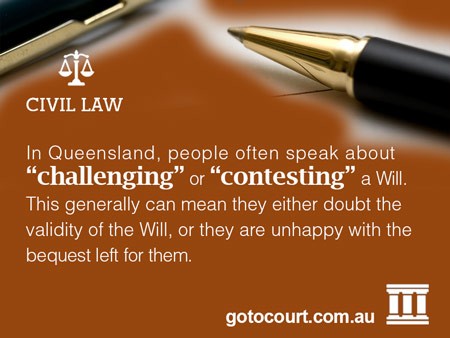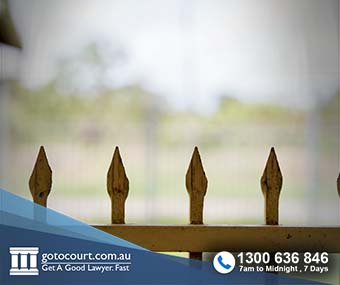Administrative Review in Queensland
In Queensland, people often speak about “challenging” or “contesting” a will. A will can be challenged or contested when a person doubts the validity of the will, or when they are unhappy with the bequest left for them under the will and wish to seek more from the Estate. This article outlines the process for challenging a will in Queensland.

Laws in Queensland regarding challenging a will
The Succession Act 1981 is the main legislation in Queensland regarding succession. Part 4 of the Succession Act 1981 relates to family provision claims. These are claims brought by family, dependants or domestic partners of a deceased person who want more from the deceased’s Estate.
Some of the laws regarding challenging a will in Queensland are not set out in legislation, but arise under the common law (i.e, case law precedents). This includes challenging a will on the basis that a testator did not have testamentary capacity to make a Will (for example, he or she had an intellectual or mental disability), that the testator was coerced, was unduly influenced or was under duress.
Challenging a will based on validity
Once a grant of probate is obtained, an executor is immediately able to carry out the testator’s instructions under the Will. In applying for the Grant, the executor is required to attest to the document’s validity and therefore the Court must be satisfied it is valid before issuing the Grant.
If you doubt the validity of the Will, then you must make this known to the executor as soon as possible after the deceased’s death and prior to the Grant being obtained. You may wish to lodge a caveat against the estate to prevent the Grant being obtained without prior notification to you. The procedure for lodging a caveat is under Chapter 15 Part 7 of the Uniform Civil Procedure Rules 1999. Lodging a caveat will force the executor to commence contested proceedings for the grant of probate, in which the Court will be asked to make a pronouncement either for or against the validity of the Will.
Who can bring a family provision claim?
In Queensland, a person must firstly be eligible to bring a claim under the Act and be either be a child, dependant or spouse of the deceased. These categories are actually much broader than at first glance, and if you are in doubt as to the status of your relationship with a deceased, you ought to seek legal advice regarding your position.
In Queensland, a “child” of a deceased person includes a step-child or an adopted child. The Act specifically states that a step-child whose biological parent died before their step-parent may still bring a claim against their step-parent’s estate, and that the relationship doesn’t end simply because of the death of their biological parent.
A “dependant” is defined in the Act as a person who is either partly or wholly maintained by the deceased and is also either a person under 18, a parent of a child of the deceased who is under 18, or a parent of the deceased.
The definition of “spouse” is found at section 5AA of the Act and is extensive. It includes not only married or de facto spouses, but partners whose relationship is registered under the Relationships Act 2011 and some cases of former partners of the deceased who continue to be maintained by the deceased.
When a person may bring a family provision claim
If a person gets over the first hurdle and is able to demonstrate that they are eligible to bring a claim under the Act, they must then demonstrate that the provision was inadequate for their proper “maintenance and support”. This is done by them giving evidence as to their income, assets, liabilities and expenditure, as well as any medical, educational and lifestyle needs.
A Court may also give consideration to any disentitling conduct which may have justified the testator’s decision to leave nothing, or not much, to a beneficiary. Although the Act doesn’t specify what constitutes disentitling conduct, this has been held to include serious criminal behaviour, estrangement due to the claimant’s own conduct (and not merely because of the testator’s wishes), and drug or alcohol abuse. Disentitling conduct does not include merely marrying or partnering with a person whom the testator does not approve of, or making career decisions which the testator does not approve of.
If a claimant can demonstrate that they have been left with inadequate provision, the next step is for the Court to determine what provision is adequate, in light of the claimant’s needs, the size of the Estate, and the needs of the other beneficiaries of the estate. The Court is given a wide discretion to make any order as it thinks fit, including making an order for a lump sum payment or a period payment such as an annuity.
Time limits in Queensland
A claimant must bring a family provision claim to the Supreme Court of Queensland within nine months of the death of the deceased. It is important to note that the time limitation is with respect to the date of the deceased’s death, and not the date that probate is granted. Therefore, in some situations, a claim may need to be brought before the executor obtains probate.




